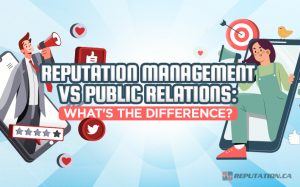Reviews are a tool that allows the consumer to keep potential purchasers apprised of the quality of a product or service. It not only benefits the customer but also helps to circulate the reputation of the business. However, the entire premise of reviews requires the reviews themselves to be posted on that specific product’s page.
If the reviews for a blender are being posted under a listing for a pencil sharpener, there will be frustration all around. So, when the reviews for a product do not match your specific product or business, it can cause concern since it can have significant consequences for your overall business reputation.
Figuring out why reviews are being misattributed to your product or service can be something of a challenge. With this article, we hope to provide some ideas into why this phenomenon is occurring and how to overcome it.
Is Your Product/Service Listed on a Third-Party Site?
One of the leading causes of this issue is having your products listed on a third-party vendor’s website. When the term “third party” is heard, it tends to carry slightly negative connotations. However, even major websites like Amazon are considered third-party when they are not the ones responsible for the creation of your product.
Unfortunately, these third-party websites focus on selling vast quantities of products from multiple brands rather than staying loyal to any one manufacturer. As a result, their review system is subject to occasional errors.
One of the most grievous issues is that some sellers who use Amazon’s hosting services do some pretty underhanded things to try and boost their sales numbers. One of these tactics includes taking over dormant store pages that already have reviews that are now being misattributed to a new product.
This action violates Amazon’s terms of service, but they can be somewhat difficult to catch in the moment. Sometimes, new products are assigned dormant pages that have not been cleared out, and your product is now tied to irrelevant reviews.
This is compounded by the fact that most customers seldom take the time to read what is under the star rating. As a result, your product will either have a reputation for providing something it was never designed to do or will suffer an unjust poor reputation for the poor reviews left for the original page’s product. In cases like this, your product being associated with inapplicable reviews is simply due to exploited or unmaintained aspects of the online vendor’s website.

Amazon, specifically, has had problems with this issue in the past. A few years back, an iPhone charging dock was sold on Amazon that was only $10.00 and, as you might expect, was not the most reliable product. However, the top comment associated with the page was from 2016 and attributed to a culinary torch rather than a smartphone charger. Such a significant disconnect between the two products is disconcerting for the average consumer and detrimental to the product or service creator.
If you have found that your products are experiencing a poor reputation among your customer base, you might consider verifying the store pages on third-party websites like Amazon. There is also always the possibility that this issue stems from a glitch with the page rather than malicious intent. Glitches are a common issue in a world where digital and online shopping is slowly becoming the norm for our commerce.
Glitches can even impact the information listed on your own website. If that is the case, it should be a simple matter of correcting the information yourself rather than relying on a third party to do so.
Is There a Chance of Customer Error?
Sometimes, the disconnect between your product and the posted reviews stems from little else than a customer who made an honest mistake. It is akin to those who accidentally send a text meant for one person to someone else. Sometimes, a customer will believe they have found the correct page associated with a purchase and will leave a review that cannot be applied to what you have to offer. While the mistake itself is innocuous enough on the part of the customer, it can cause significant issues for you.
If a review is mistakenly placed on the wrong page that attributes a benefit from one product to that one, it can cause discontent among customers who buy it for that reason. For example, say you are selling a phone charger, and someone leaves a review praising its function as a speaker even though it has no such function. People who expect it to serve as one will be unhappy. This disappointment, in turn, will lead to these disgruntled purchasers leaving poor reviews for a function they mistakenly believed your product had.

Obviously, having accusations of false advertisement can be a business killer for virtually anybody, especially since consumers are more likely to believe their fellow customers over the service provider. This is simply ingrained solidarity since it is no secret that most businesses are only interested in revenue rather than genuinely making their consumer base happy. However, even the most honest of businesses can be negatively afflicted when a simple mistake is made.
On the opposite side, sometimes someone leaves a scathing review for a product they thought they purchased from you that really came from someone else. This can lead to more of the same as too many negative reviews, regardless of whether they were left there by mistake can cause potential customers to distrust your product instinctively. This can devastate your company’s reputation and drive down revenue and prevent you from being able to maintain your business.
In some cases, they might have ordered a product similar to yours but came from a completely different company. As a result, the review that they mistakenly placed on your product was actually meant for someone else’s product. While this was not the customer’s intent, their error can be a problem for you. Either way, this sort of thing makes monitoring the reviews for your products such an essential practice. This way, any reviews that are left in error or are simply inaccurate can be resolved sooner rather than later.
It Could Simply Be Sabotage
Every business in the world has competitors; it is a fact of commerce. These competitors are what push service providers and producers of certain luxuries to improve their performance as time goes on. However, this does not mean that your competitors will pull any punches that might otherwise give them an advantage over you and your product. As dishonest as this might seem, this also includes posting false reviews of your product to make their service more appealing in comparison.
Some of your more underhanded rivals in the field might place reviews on the store page actively bashing and criticizing your product. They might use flaws that only manifest as a result of misuse of the product or, more rarely, outright lie about issues they have had. This can cause potential customers to be wary of purchasing on your website or any third-party host for your product. This sort of behavior is not sanctioned, but it is still a possibility if you are placing your competitors in a tough spot professionally.

As with the previous, verifying the reviews left behind for your product can help you isolate genuine ones against those left with malicious intent. It will take some effort to undo some damage, but it is feasible. It is also important not to stoop to their level when they leave these disingenuous reviews to promote themselves. Otherwise, you lost credibility instead of just defending the integrity of your business.
The odds of sabotage reviews are relatively low since it is heavily frowned upon. However, there always exists the possibility. You are more likely to receive false reviews from potential or former customers looking for a freebie in exchange for removing the review. However, even these can be combatted by reviewing that person’s history with you and your services.
How to Combat Misattributed Reviews
As we have said, finding ways to combat reviews that are erroneously applied to your product or service is vital to ensure that your business does not suffer. Review management often requires you to dedicate a team of employees specifically to that end. This can be essential in a world where word of mouth from customers is enough to destroy your business.
Review management, however, does not mean simply deleting bad reviews that are mistakenly attributed to your product. On the contrary, doing so only makes it seem like you are covering up what appears to be legitimate criticism from your customers to the untrained eye.
Instead, the key lies in engaging with the review poster and showing them that their concerns are being heard even when the review does not apply to the product or service you have to offer. Engaging with these reviewers not only allows you an opportunity to correct them gently but possibly earn their business for a product or service that might be superior to what they had previously been reviewing.

Responding to the concerns of these mistaken customers requires you to gently explain the reality of the situation while also showing appreciation for their attempt to review your product. The diplomatic approach is always the best course of action when addressing false reviews. Especially since those left in error will likely be a source of embarrassment for the reviewer in question. Follow this checklist:
- Thank them for their time in reviewing your product.
- Ask for details regarding their issues with your product.
- Look them up in your customer database.
- Gently explain their mistake while assuring them that it is understandable.
These four steps should help mitigate any repercussions to your reputation while letting everyone walk away with their dignity.
However, doing so is time-consuming and might not be viable depending on the resources you have to draw from. So, taking the time to manage all the reviews coming into your product page might not be within the realm of possibility without hiring several new employees to handle that specific task.
However, this does not mean that review management is something that can effectively be overlooked. It might come down to bringing a third-party review management firm to handle the task on your behalf. In so doing, you can rest assured of your company’s reputation without having to divert too many resources.
Put the “Great” Back in Your Reputation
Unfortunately, reviews hold more power over your reputation than most other reputation management attempts. No amount of advertising can effectively undo the reputation that your customer base has perpetuated for you and your business. This means that directly interacting with customers, potential and existing, is the only real way to undo the damage from reviews that do not line up with the service or product you have to offer. Whether intentional, mistaken, or designed to sabotage, these reviews will impact your business if not addressed quickly and effectively.

As we said, we know that it is not always possible to handle these situations on your own. This is why we at Reputation have made it our mission to help manage the reputations of companies online.
Review management is one of the biggest services we offer in pursuing this mission, but we also help by managing your social media presence and search engine optimization while tracking your overall reputation. Reputation is everything, and we know that all too well. Fortunately, we are here to help. So, give us a call today and experience premium-level reputation management.
Do you or your business have any questions about today’s topic, or do you perhaps require any further clarification on certain parts that we mentioned? If so, please do not hesitate to reach out and contact us at any time! Dealing with a situation such as this one can be incredibly stressful, and you may not want to handle it entirely on your own. We would love to be able to help you and your business however we possibly can!











